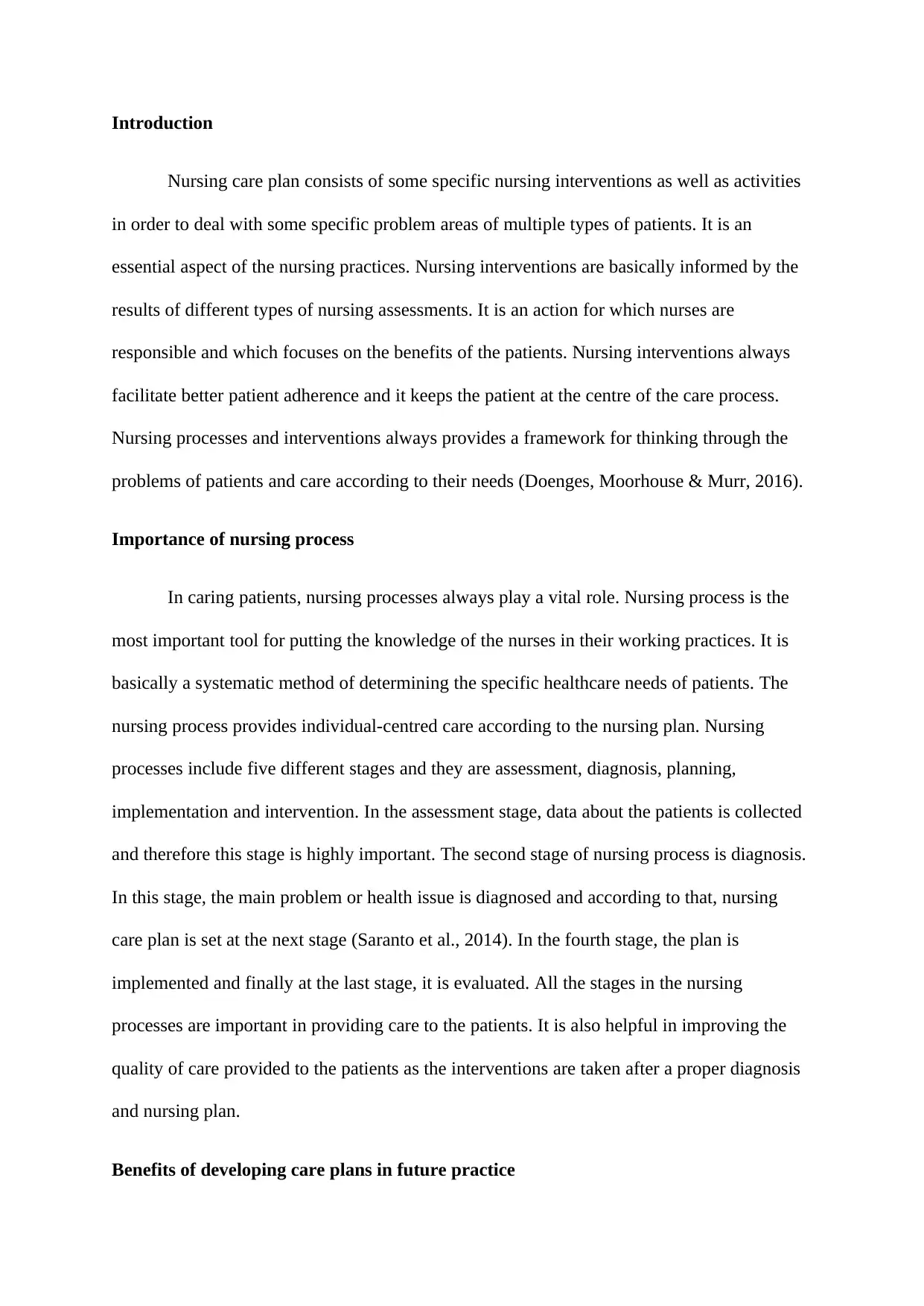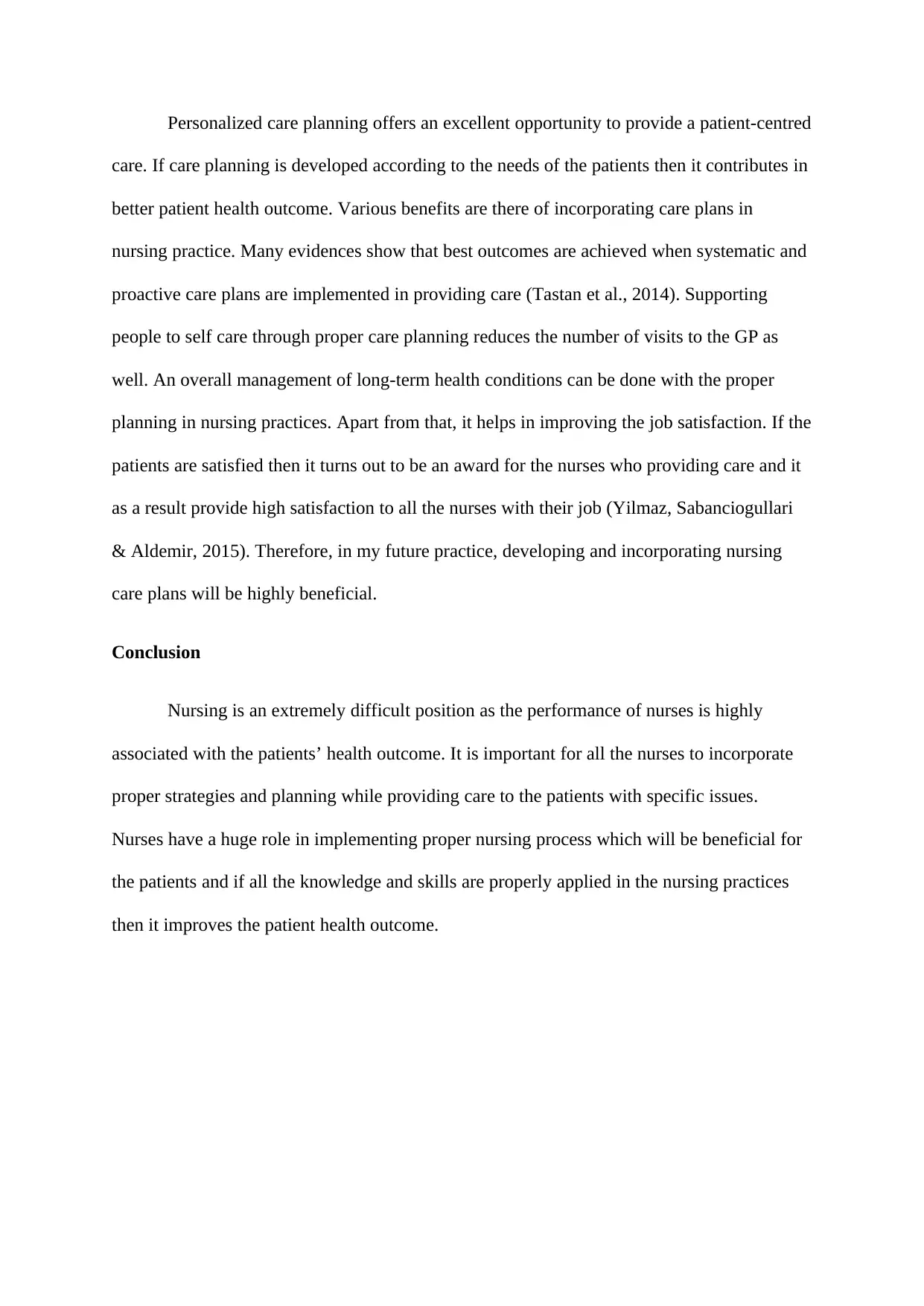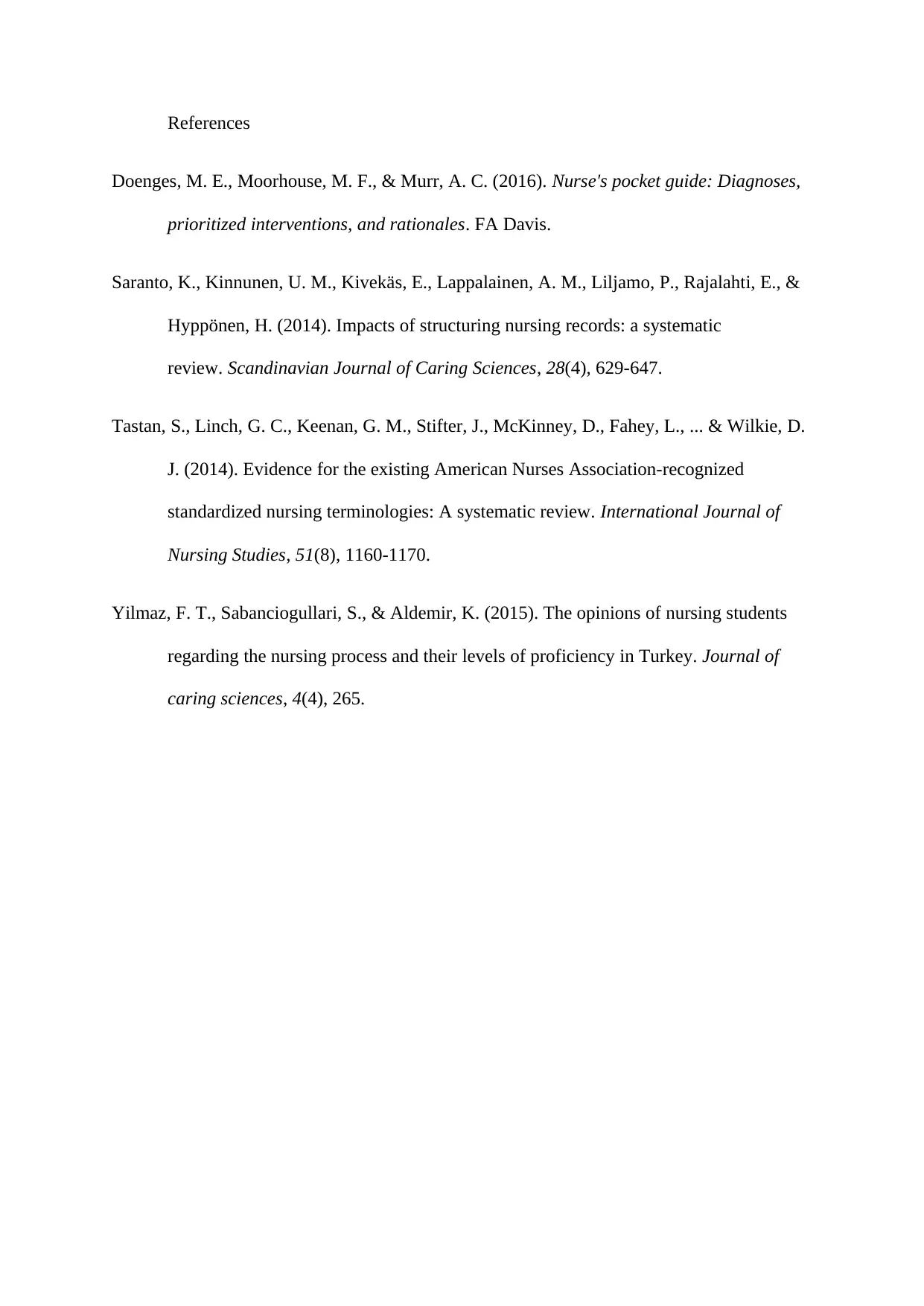Applying the Nursing Process: NFDN 1001 Care Plan Assignment
VerifiedAdded on 2023/05/29
|3
|811
|406
Practical Assignment
AI Summary
This assignment focuses on the application of the nursing process to a client, specifically Mrs. Judy, a 29-year-old woman recently diagnosed with type 2 diabetes. The assignment requires the development of a comprehensive nursing care plan, incorporating assessment, diagnosis, planning, implementation, and evaluation stages. The care plan addresses Mrs. Judy's health issues, including her diabetes, weight gain, and anxiety, considering the metaparadigm components of person, health, environment, and nursing. The document emphasizes the importance of nursing processes and care plans in improving patient outcomes, providing personalized care, and enhancing job satisfaction for nurses. It also references several scholarly articles that support the benefits of systematic care planning in nursing practice. The assignment showcases the practical application of nursing knowledge and skills in addressing patient needs and promoting better healthcare outcomes.
1 out of 3










![[object Object]](/_next/static/media/star-bottom.7253800d.svg)